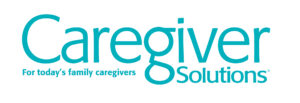 Handy Andy
Handy Andy
Our neighbour lives alone and seems to have a handyman to fix and paint all the time. I worry that she’s lonely and he’s taking advantage.
A: There are a number of ways that people target or take advantage of trusting seniors. In some cases, it’s trade people—and in others, it’s scams.
Here’s some wise advice that we like to give:
1) Ask a trusted relative to review any quotes or representations of work to be done.
2) Get several quotes from reliable and established companies.
In your case, we suggest asking one of her family members or the police to check things out if you’re worried about the odd job man. Better safe than sorry.
Infusion Therapy
Are there options for infusion services outside the hospital?
A: You can book a clinic appointment or request in-home services if they available in your area. Clinics are a safe, convenient choice for oncology, neurology, immune-oncology, rheumatoid, arthritis, gastro, dermatology, intravenous or antibiotics. They have the same equipment and safety protocols as hospitals in a comfortable environment. In home administration of infusions and injections can be arranged for a more personal experience.
I Told You So
I’ve heard that the RCMP is warning seniors about scams. My mom won’t listen to me but I know she reads Solutions religiously. Can you print some of the worst ones?
A: To protect yourself and your loved ones from fraud, it helps to be aware of common scams. In its ‘Seniors Guidebook to Safety and Security,’ the RCMP warns Canadians about these common schemes:
- Extortion scams and debt collection scams: Scammers pretend to represent government agencies, such as the Canada Revenue Agency or Immigration, Refugees and Citizenship Canada. They demand personal information, including financial details and passwords, or payment for “back taxes” by wire transfer or with prepaid credit cards.
- Technical service scams: Fraudsters pretend to offer services such as Internet, finance, energy or telecommunications services; including insurance and extended warranties. According to the RCMP, the most-reported service scams targeting Canadians are the anti-virus software scam (fake Microsoft or Windows technicians) and lower interest rate scams.
- Charity scams: Scammers impersonate real charities in person, on the phone or online, often exploiting a real-world disaster or issue. They may use the logos and branding of real charities as part of the ruse.
If you think you or someone you know has been targeted by fraudsters—or if you’ve lost money to a scam—report the incident to the police. You can also notify the Canadian Anti-Fraud Centre, by calling 1-888-495-8501. Call, even if the amount you lost is small; reporting it may help prevent others from being scammed.
Many thanks to Caregiver Solutions for sharing these articles with our community
Posted By Jordan Kalist